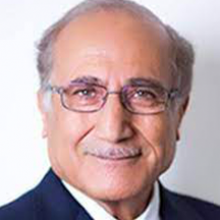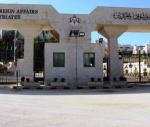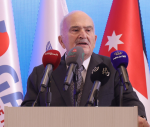You are here
Enacting laws
Nov 23,2015 - Last updated at Nov 23,2015
French naturalist George-Louis Buffon of the 18th century is credited with the famous quote “style is the man”, which I always thought was vintage Shakespeare.
I remembered this quote when I was listening and watching His Majesty King Abdullah deliver his inaugural speech to the third session of the 17th Parliament, on November 15.
King Hussein used to give longer speeches delineating what his government had done and what it shall do over a year to come.
In his capacity as the head of the executive branch of government, King Hussein was the director of the decision-making process.
King Abdullah does not go into detail. While his great grandfather and namesake King Abdullah I had a “classical approach to his inaugural parliamentary speeches, King Hussein had a “naturalist” approach.
King Abdullah exhibits a modern impressionistic style. He sets priorities and new horizons, and leaves the details for the Council of Ministers. Each King had his own style which fits the atmosphere and the issues of the era during which he reigned.
The King is the head of the executive branch, as the Constitution stipulates, but he is not accountable to the Parliament; the Council of Ministers, individually and collectively, is.
The King sets the overall picture and the government acts on it to the best of its judgement, within the confines of the Constitution and the laws.
In his speech on November 15, King Abdullah stayed the course of reform in all of its political, administrative and economic dimensions.
He also highlighted the priorities of both domestic and external issues. Yet, he specifically directed the government to prepare two draft laws: the transparency law and the investment fund law.
Since Jordan is looking into empowering local governments and is intent on a decentralisation programme, transparency and fair practices are important to governance.
A new, solid, law based on the best practices known offers an insurance that decentralisation does not become a window for corruption opportunities.
The investment fund law is warranted by the fact that Jordan needs large sums of cash to pump into the economy that should be enabled to cope with the rapidly growing population.
Infrastructure and large productive projects should be moulded in a way to allow large institutional investors abroad to take equity in such projects.
Sovereign funds, pension and social security funds, investment banks, individuals looking for long-term wealth assets and Islamic funds should be enticed to participate.
An ad hoc ministerial committee had already been set up in order to work on a draft proposal that can be packaged into a draft law.
It should allow the fund to be fully autonomous, based on the best practices and commercially viable; its projects have to be bankable.
According to the government, there are JD23 billion worth of projects ready to be financed.
The King had set the directive, and both executive and legislative bodies should work hard to see these laws written and passed during the current session of Parliament.
The writer, a former Royal Court chief and deputy prime minister, is a member of Senate. He contributed this article to The Jordan Times.













